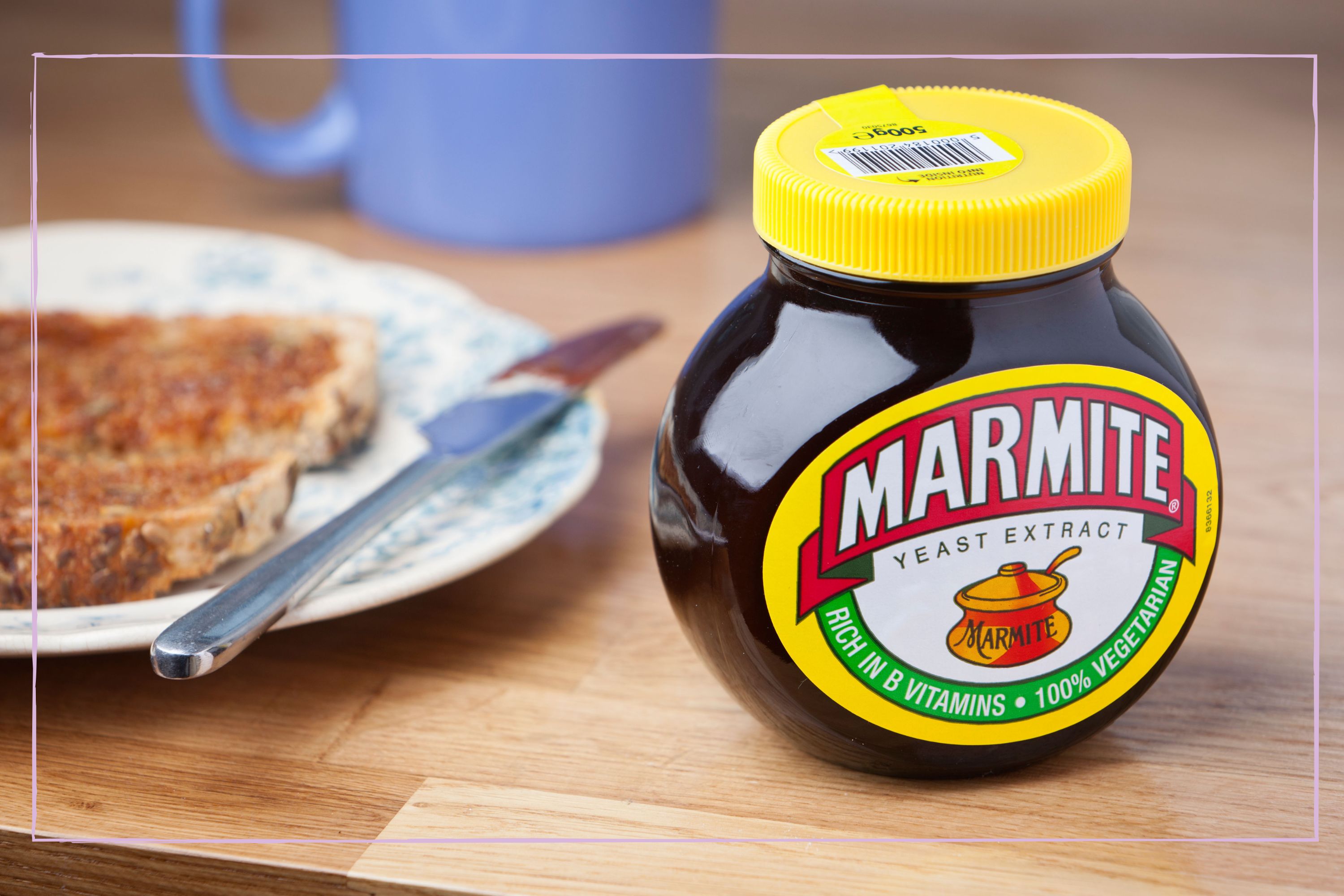
Nothing divides families more than love or hatred for marmite - there's no middle ground with this divisive food. But, kids will surely be delighted to find out the meaning of the name whether they're fans of it or not.
We love to be helpful and arm you with fun facts for kids and exciting information to blow their minds. They'll be in awe when you tell them how the pyramids were really built, and if they want to know what does HARIBO stand for, we have the awesome answer (and you'll love coming up with your own family 'HARIBO' name.)
To add to your fun parent knowledge base, we can now tell you where the word 'Marmite' comes from - and whether you like the sticky dark stuff or not, you can't deny it's a clever nod to how the spread is made. Here we go:
Where does Marmite get its name?
Marmite gets its name from the earthenware pots it was originally made in. These French-designed pots were actually called marmites, pronounced 'mah-meet.' Between 1902 to some time in the 1920s, the spread was even sold in miniature earthenware marmites, before the glass jars were introduced.
The shape of the glass jars and iconic red and yellow branding have barely changed since the 1920s. If you've ever wondered what the pot on the front of a Marmite jar is, it's what the original marmite pots would've looked like, that the spread was originally produced in.
Over the years, Marmite diversified and introduced Marmite rice cakes, crisps, nuts, and best of all - cheese. Cheese and Marmite on toast is a top tier snack, but Marmite cheese on top of Marmite is like something from heaven (don't come at us).
Top Marmite facts
- It was invented by accident. In the late 19th Century, German scientist Justus Liebig, found brewer's yeast could be concentrated and turned into food. Jumping on this find in 1902, brewers in Burton-on-Trent had plenty of the yeast available to them and used Liebig's findings to make Marmite - and so the Marmite Food Company was born.
- It's really good for you. It's full of both vitamin B-12 and folic acid, meaning it's a great instant hit of vitamins for people short on B-12, and great for women of child-bearing age who need folic acid.
- The recipe has never changed. Just like the branding and packaging, Marmite's ingredients have remained the same. It simply consists of brewer's yeast, salt, spices and celery.
- It could get rid of mosquitoes. There's several claims suggesting Marmite makes a good mosquito repellent. Although not scientifically proven, plenty of people will attest to the tarry substance being repulsive to the annoying flesh biters.
- It has a sculpture in its honour. In 2010, Unilever, who now owns the brand, had a sculpture built in Marmite's honour. Costing £15,000 and named Monumite, the sculpture can be found next to the Burton-on-Trent library.
Mum-of-two, Lucy, loves Marmite and it's a disappointment that nobody else in her family likes it. "When I first met my husband, one of the first things we disagreed on was Marmite - he wouldn't even sit next to me if I'd eaten it," she says. "When we had children, I couldn't wait to introduce them to Marmite, but they both hate it and I'm devastated. They'll be interested to find out where it got it's name though, maybe the excitement will encourage them to give it another go!"
However, mum-of-two, Marie, has a full family of Marmite lovers. She says "There's no divide in our household, we all adore Marmite. It always comes with us on holiday because none of us want to start our day without toast swimming with butter and Marmite. I once got my children Marmite jars with their names on for a Christmas stocking present, and they still talk about how much they loved them."
Where do you stand in the Marmite debate?
For more interesting things to tell your kids, if you've ever wondered why do pirates wear an eye patch, or why do birds sing in the morning, we've got you covered with the answers. We also reveal why we say 'white rabbits' on the first of every month.







